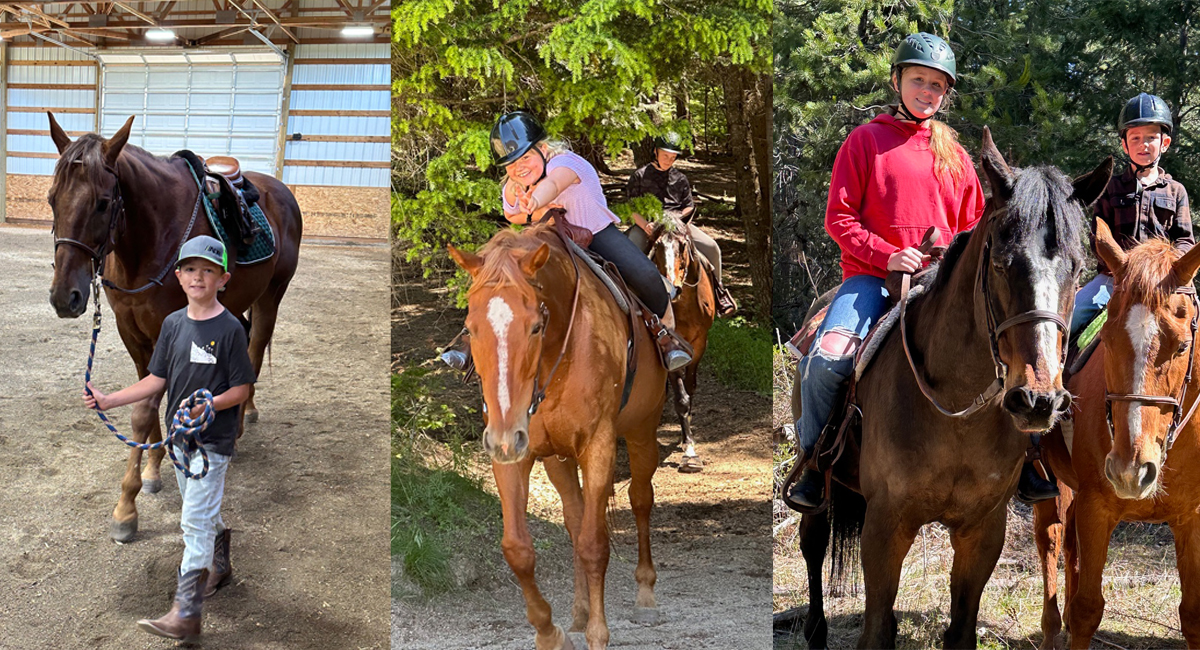California Thoroughbreds getting and giving new opportunities in the Pacific Northwest.
Matthew and Candace Chew left the big city behind for a simpler, quieter life. But when the California natives moved to Northern Idaho, they didn’t leave behind their passion for horses or their dedication to providing people the benefits of interacting with them.
Matthew was still training racehorses at Santa Anita Park and Candace was deeply involved in the Thoroughbred racing industry when they bought 18 acres of remote, wooded property near Hayden Lake. Two streams that burble through their property’s borders are the noisiest things around.
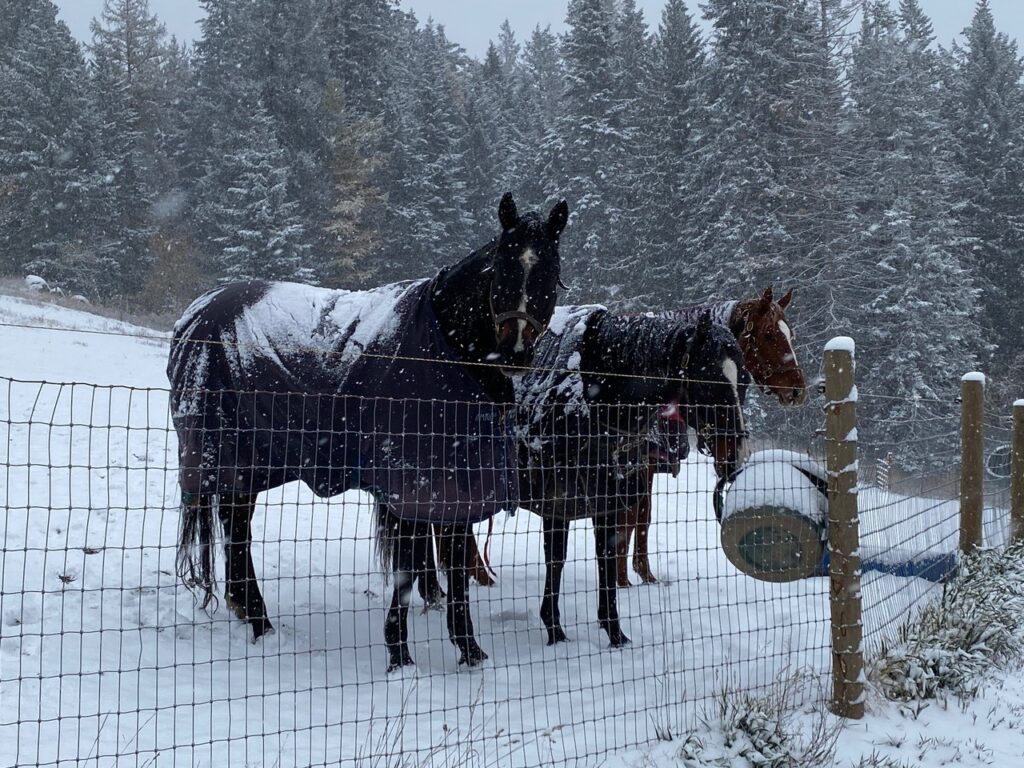
The sky is endless. Dense rows of pine trees paint the hills every shade of green and gold.
It’s peaceful.
Except when there are some of the 60 kids from Fostering Idaho who enjoyed riding lessons at Champions Retreat this past summer. Then, it was the happy, chatter of young people meeting a horse, feeding a carrot, learning to direct an animal many times their size and strength, but gentle and wise.
Matthew and Candace settled in the Idaho Panhandle location, near Coeur d’Alene, and started Champions Retreat in 2020. It’s a sanctuary for retired Thoroughbreds from California and a rehoming program for those suited for second careers.
Above all, it’s a continuation of two Chew commitments – demonstrating that Thoroughbreds are wonderful horses suited for a variety of second careers and facilitating ways for those horses to help people.
Before Idaho
Candace, aka “Candie,” brings a long history in the Thoroughbred aftercare world. She served as president and vice president of the California Retirement Management Account (CARMA) over 12 years. She guided expansion of CARMA’s Placement Program and the Thoroughbred Classic Horse Show that significantly promoted the breed’s attributes to the wider equestrian world.
As Santa Anita Park’s director of print and graphics for 28 years, and as a trainer’s wife for nearly 40, she brings connections and experience to Champions Retreat.
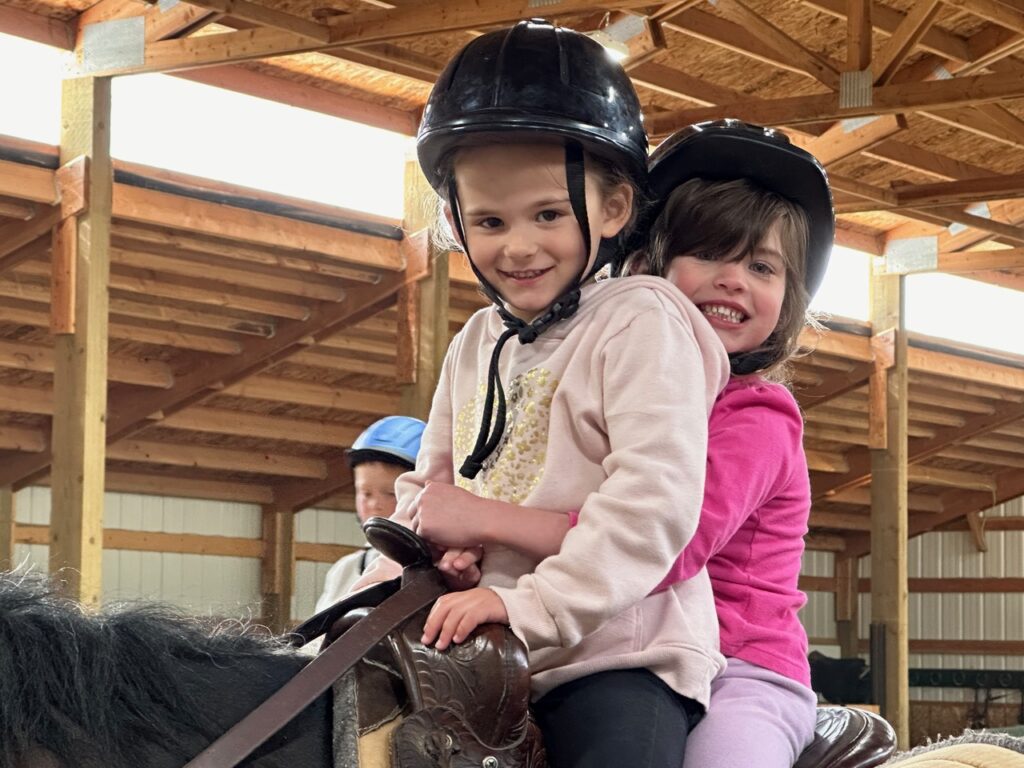
Matt started training horses at 18. He grew up at Santa Anita Park, where his father Richard trained, following in the footsteps of William Chew, a New York state professional.
Four hundred race wins and $9.4 million in purses made Matt a “backbone of racing” type trainer, explained the Blood Horse magazine. And one who “never wavered in his philosophy to do what’s right by the horse.”
The People
Matt found ways to connect horses and people with challenges early in his career. He volunteered for therapeutic riding programs often while based in Northern and Southern California.
Candace’s “horse-centric” life started with helping her family operate a boarding facility in Northern California’s Chico. Taking on the tougher horses and helping those in need has always been part of her life.
For Candie, the “ah-ha” moment around connecting horses and people came in the couple’s Santa Anita days. The Chews were the go-to crew for the track’s public relations and charitable endeavors. If the media wanted to meet one of the five stand-ins for the equine star of the Seabiscuit movie, Candie and Matt brought out Fighting Ferrari, aka “Fred,” for a meet and greet.
When a Down Syndrome and Autism group visted, Candie and Matt greeted the group and Matt led Fred to the Paddock Gardens. The kids fed carrots and petted the horse. One visitor, Austin, seemed especially excited to meet Fred.
“I’m the cautious one and Matt is more fly-by-the-seat of his pants guy,” Candie shares. “Matt handed over Fred’s lead shank to Austin and let him take Fred for a walk around this small space.
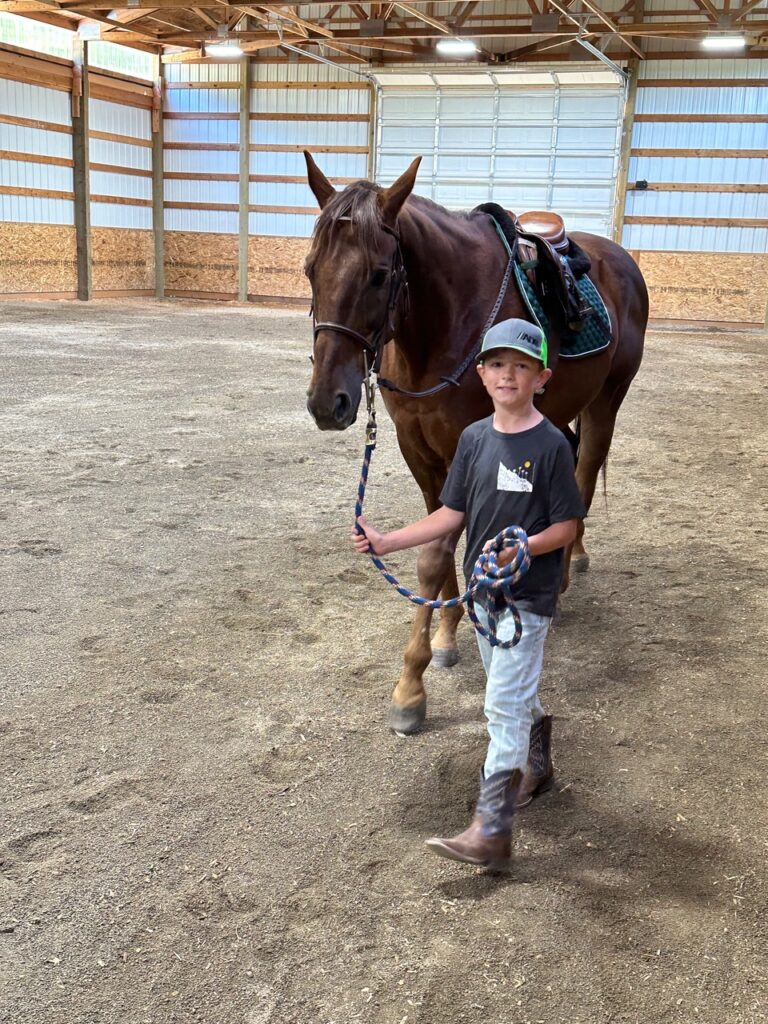
“The media was there to document it, the horse was fine with all this, and the kid was chattering away to Fred, telling him his life story,” Candie continues. “I’m laughing and thinking it was the cutest thing in the world, until I noticed three people standing nearby, with their jaws dropped. I immediately went over to apologize to them, thinking that we should have asked permission.
“I started to apologize, but Austin’s mother said, ‘No, you don’t understand. Austin is non-verbal.’ That sent a lightning rod chill up my spine. I thought, ‘Oh my god, this is what we are supposed to be doing’.”
Champions Retreat earned charitable 501(c)3 non-profit and tax-exempt status in 2020 and its format for providing service to the community continues to evolve. Their Fostering Idaho program grew from 40 participants in 2023 to the 60 participants this past summer. The kids typically come in groups of 4 and get an hour of one-on-one time with the horses.
“We never push them to get on the horse,” Candie explains. Sometimes they just stand near the horse, or feed them carrots, or lead them around the small indoor arena. Matt or Candie pony the horse and rider and volunteers accompany on either side for safety. Western saddles add security, and all participants wear helmets and close-toed boots.
“We talk to them and tell them about the horse they’re riding.” Some of the horses’ famous sires, like Affirmed and Danehill Dancer, might not ring bells for the youngsters. But they get that it’s a big deal to be riding a racehorse. “Most of them don’t want to get off,” Candie says.
“The experience of relating to an equine is often the highlight of these kids’ lives,” she continues. “Conquering their fears and climbing up on something that is 25 times their size and controlling the forward motion of that animal is both exhilarating and rewarding to kids that have lived through trauma and displacement in their young lives.”
The horses, like 23-year-old Luke and 25-year-old Freckles, know their job. “They cut loose when they’re out in pasture, but they take it down a notch when the kids are around.”
Organizations serving veterans groups, domestic abuse victims and those seeking vocational skills are on the growing list of community programs connecting their clients to Champions Retreat opportunities.
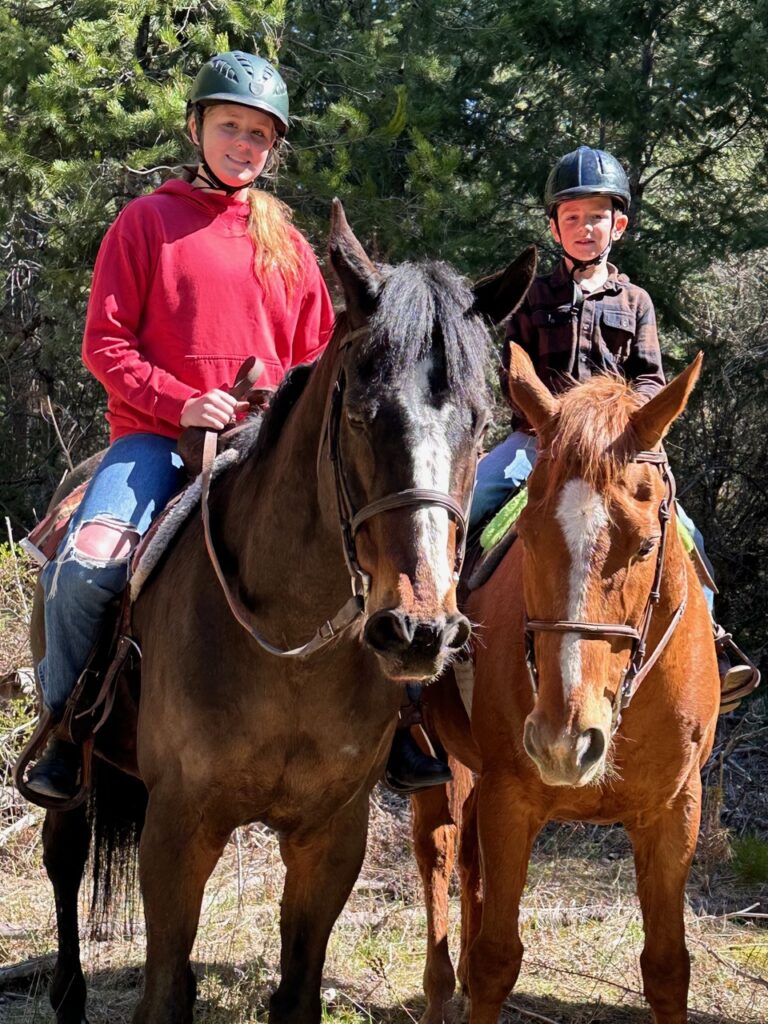
The Chews also make their facility available more informally. They’ve donated trail riding experiences to several fundraisers. As their time allows, they welcome direct inquiries from those who feel a horse encounter may help a loved one or friend.
The Horses
Eight retired racers currently call Champions Retreat home. Two are senior citizens and permanent residents. Four are used for therapeutic programs, including two accomplished sport horses that Matt and Candie ride to pony their charges. And, two more, Maverick and Zion are re-homing candidates.
Maverick’s official name is Silken Prince. He’s an 8-year-old sired by Kafwain. Zion, aka “My Mon” is 12.
Potential adopters are evaluated carefully. The adoption contract includes an agreement to return the horse to the Chews if the owner can’t keep it or care for it properly. The Chews have rehomed four horses already since establishing Champions Retreat in 2020. “We had hoped to take on and rehome two horses every year, but we found they sometimes need more time.”
“Making sure they end up in a good spot” is as important to the Chews now as it was when they helped place horses throughout their years working in the industry. “The worst thing in the world is to have known a horse and find that it’s wound up in bad situation.”
Champions Retreat is affiliated with CARMA and the national Thoroughbred Aftercare Alliance as an aftercare partner. Both organizations require an extensive application process. “It took me two months to fill out the TAA’s application! They are very careful and that’s good!”
Funded by grants, donations and their personal funds, Champions Retreat is careful to maintain a financially manageable horse count. The Chews extensive experience makes them keenly aware of the predictable and unpredictable expenses of responsible horse ownership. “The horses always come first,” Candie says. “They’ll eat before we do.”
“I think Thoroughbreds are the most versatile of all horses,” Candie asserts. “Because they are so athletic, and they come in all different shapes and sizes.” Thoroughbreds are well known for their accomplishments in the Olympic disciplines of jumping, three-day eventing and dressage. They’re equally well suited for western riding, gymkhana events and trail riding, which are more prevalent in the North Idaho and Eastern Washington area served by Champions Retreat.
Exposing their horses to a variety of stimuli is key to prepping them for success in new homes. In most cases, horses come off the track knowing how to walk, trot and canter in both directions, and to change leads at the canter.
After plenty of time in pasture to decompress from the track and acclimate to their new life, horses hit the trail with Matt and Candie. They encounter wildlife – deer, turkeys, moose – hear distant cracks of hunting rifles, cross streams and hop over fallen logs. “We expose them to whatever we can. For the most part – that ensures they’ll be ready for whatever they’re exposed to in their next home.”
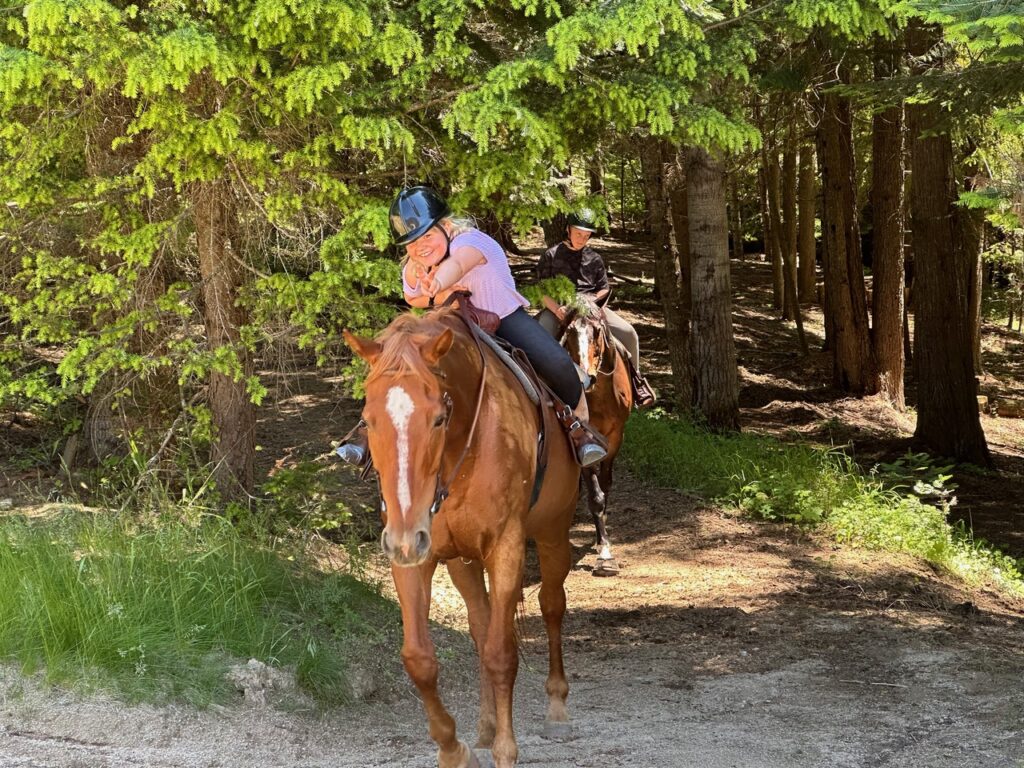
The Life
Candie had family and friends in the Pacific Northwest, so she knew what she was getting into in terms of a quiet and relatively isolated lifestyle. Matt did not. “I’m a city boy,” says the third-generation horseman. “Now I’m doing myself all the things we used to pay people to do for us.”
Matt maintains his racing industry friends and ties with occasional consulting and horse shopping trips with longtime owners.
Starting from scratch with their horse keeping facilities, the couple designed everything for efficient feeding, management and care of the horses. “Either one of us can handle everything on our own for a week or more,” Candie says.
Occasionally, they get away for longer stretches, like attending the Kentucky Derby last spring and visiting a large local aftercare program called Second Stride. These trips are made possible by a Los Angeles friend, a veterinary technician, who flies in to care for the horses.
Even in the off-season – from November to April – maintaining the property and keeping horses exercised and schooled is a lot for two people.
That’s when Facebook came to the rescue as Candie found two seasoned riders looking for opportunities to exercise horses. “They’re both experienced horsewomen who used to work at big hunter/jumper barns.”
Although Northern Idaho is known for its relative isolation, horse people tend to find each other. “There’s been a lot of word of mouth about what we’re doing,” says Candie. “People gravitate to us. We have met some really wonderful people and things are evolving faster than I thought they would.” Visit www.championsretreat.org for more information. Donations are much appreciated and always put to good use!
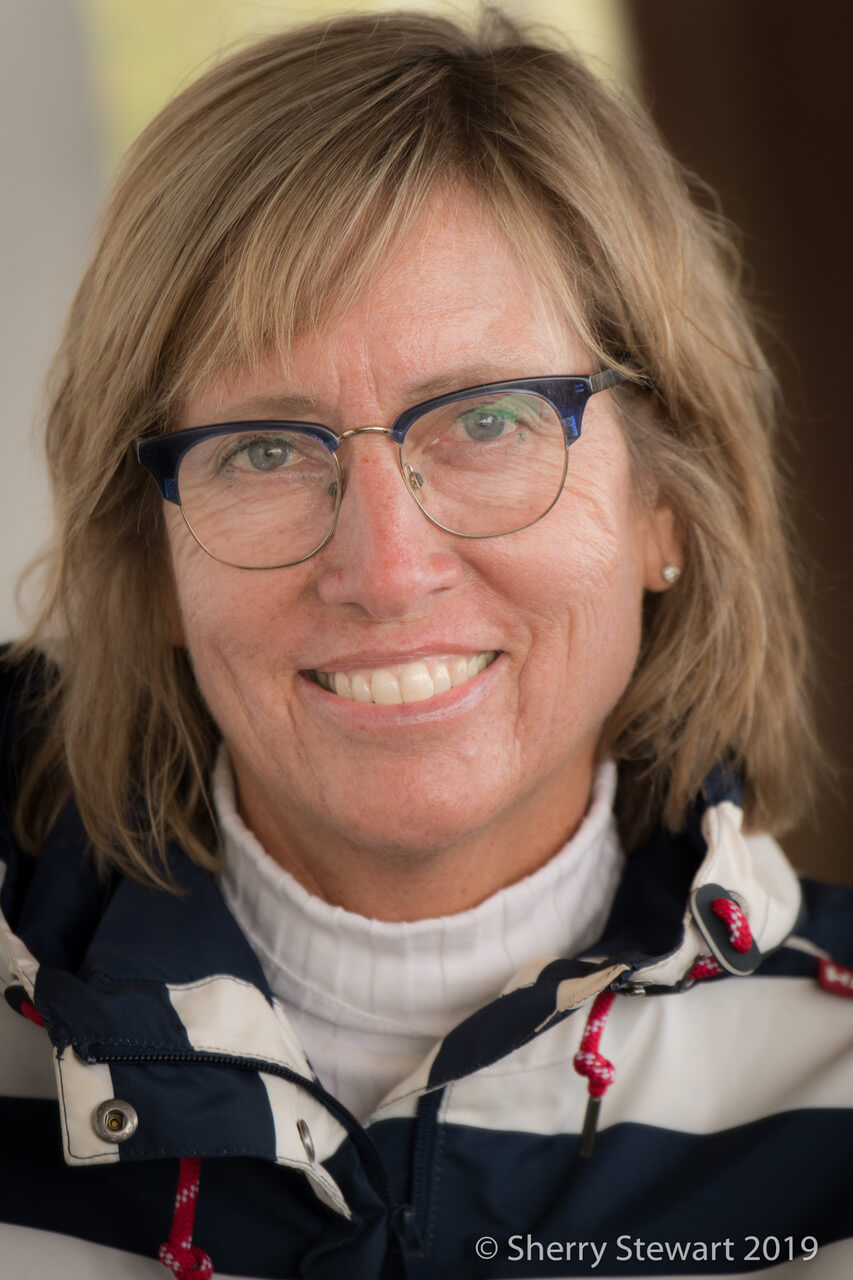
Kim F Miller is marketing manager at https://greenhorsebrands.com and a freelance journalist and marketing copywriter. . [email protected].
Bio photo by Sherry Stewart.





